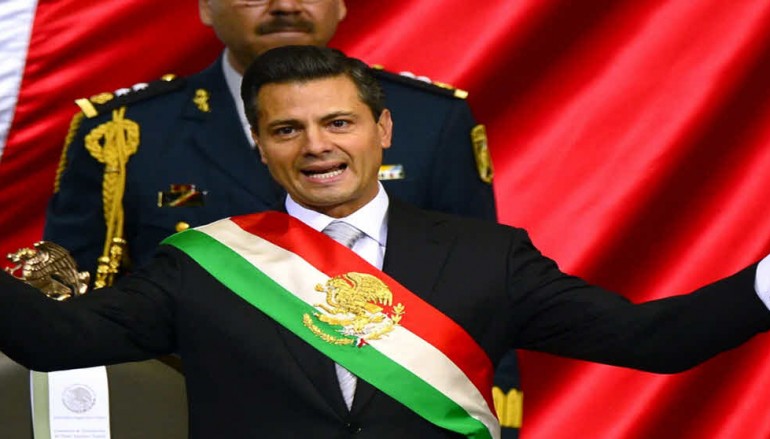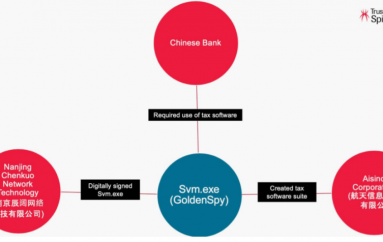
Hacker claims he helped Enrique Peña Nieto win Mexican presidential election
A digital dark arts campaign by mercenary hackers helped Enrique Peña Nieto win Mexico’s 2012 presidential election, according to an imprisoned Colombian hacker who says he was involved.
Andrés Sepúlveda, an online campaign strategist, claimed he had also helped to manipulate elections in nine countries across Latin America by stealing data, installing malware and creating fake waves of enthusiasm and derision on social media.
In an interview with Bloomberg Businessweek, the Colombian – who is currently serving a 10-year prison sentence – boasted of his ability to hack into campaign networks and manipulate opinion.
“My job was to do actions of dirty war and psychological operations, black propaganda, rumours – the whole dark side of politics that nobody knows exists but everyone can see,” the 31-year-old told Bloomberg.
However, Sepúlveda’s claims are fiercely contested by some of those he accuses. Juan José Rendón, the Miami-based political consultant who allegedly hired the hacker, told the Guardian he had only met him once and used his service only indirectly via subcontractors for website design in 2005.
“He is delusional,” Rendón said in a phone call. “All the things he describes are exactly like the TV show Mr Robot.”
Denying all accusations of wrongdoing, Rendón challenged Sepúlveda and Bloomberg to provide evidence of the claims in the form of emails or CCTV footage. He also cast doubt on the suggestion that the Internet is decisive in shaping public opinion.
“Can you really change the will of the people through social networks? Maybe in Ukraine or Syria where there is no alternatives. But here (in the Americas) where there is TV, a free press and door to door campaigns, it is not so influential,” he said.
Although he was well paid for his work, Sepúlveda said his primary motive was political. He supported right and centre-right candidates against what he called “dictatorships and socialists governments”.
In Mexico, however, he reportedly had a $600,000 budget to undermine the campaigns of Peña Nieto’s two main opponents on either side of the political spectrum: the ruling National Action party’s Josefina Vázquez Mota and the Democratic Revolution party’s Andrés Manuel López Obrador.
His team are said to have installed malware at the headquarters of the two candidates, which let them monitor phones and computers.
According to the report, Sepúlveda saw speech drafts, meetings plans and campaign schedules as they were typed into the keyboard.
Using this information, he used a “virtual army” of fake Twitter accounts to direct public debate towards subjects that would strengthen Peña Nieto – for example by acclaiming his plan to crack down on drug violence – or embarrass rivals.
Sepúlveda said he brought high-quality fake accounts that had been maintained for more than a year to make them look genuine, as well as generating 30,000 low-end Twitter bots that bumped up numbers of “likes” and “follows”, thereby creating memes and shaping discussion.
“When I realized that people believe what the internet says more than reality, I discovered that I had the power to make people believe almost anything,” he told Bloomberg.
The black propaganda could also be more focussed. To alienate the conservative Catholic supporters of a regional candidate in Tabasco, Sepúlveda claims he set up fake Facebook accounts of gay men to provide unwelcome support. In the swing state of Jalisco, he deliberately upset voters with automated 3am campaign calls purportedly coming from leftwing gubernatorial candidate Enrique Alfaro Ramírez – who subsequently lost by a narrow margin.
To varying degrees, he said he applied similar tactics in other elections over an eight-year period in in Venezuela, Nicaragua, Panama, Honduras, El Salvador,Colombia, Costa Rica and Guatemala.
Sepúlveda is now in jail for hacking crimes related to Colombia’s 2014 presidential election, when he tried to help rightwing opposition candidate Óscar Iván Zuluaga who opposed peace talks with the leftwing rebels of theRevolutionary Armed Forces of Colombia (Farc). After several attempts on his life, he reportedly choose to go public with his allegations so he can win support for a reduced sentence.
Sepúlveda said he destroyed most of the evidence and that many of the candidates he helped may be unaware of his role, which was organised via middlemen. Chief among them is Rendón, dubbed the “Karl Rove of Latin America”. The article cites email between the two men. But Rendón said the emails had not come from any of his accounts.
Peña Nieto’s office issued a statement on Thursday night, saying: “We reject any relationship between the 2012 presidential campaign team and Andrés Sepúlveda or that there was a contract with the consultant J.J. Rendón.”
The statement also disavowed the use of the “information and methods outlined by the said article”, and that, “the actions of the campaign abided by the rules and restrictions established in the applicable electoral legislation”.
Jorge Ramírez Marín, a member of the Institutional Revolutionary party (PR) and vice-coordinator of the 2012 campaign, called the story: “Absolutely false. It has no basis in reality. It’s frankly fantasy.” He also pointed out the PRI was the federal opposition in 2012, though it dominated a majority of the increasingly influential and opaque Mexican state governments.
López Obrador, who also finished second in a 2006 election he considers to have been rigged, said via Facebook the allegations were “nothing new, although it’s repugnant and evil”.
Rendón told Bloomberg he had worked on behalf of PRI candidates for 16 years.
Source | TheGuardian





